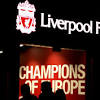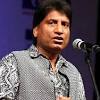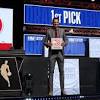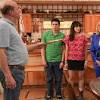The Munsters movie review & film summary (2022)
The sense of humor of the sitcom, with its bigger-than-life performances from Fred Gwynne and Al Lewis, its cartoon sound effects pulled from the same closet where “Bullwinkle”s editors had left them, the sight of Universal monsters keeping up with the joneses in the suburbs of Mockingbird Lane—all of that infected everything that Zombie made thereafter. From his concert and cartoon films to his stand-up specials, to his horror movies, there was always a naive humor, often as an ironic counterpoint to the violence and murder of his art. His newest movie, a tonally straight-forward and shockingly faithful-in-spirit adaptation of the show, simply titled “The Munsters” (technically the sixth movie made with these characters) is like a missing piece from his directorial work, a completely innocent, at times screamingly funny movie that’s mostly about an idealized world made of '60s cultural icons, a slicing of reality’s fabric so we might step directly into Zombie’s visions of his past sitting in front of the TV.
We open on Dr. Henry Augustus Wolfgang (the always great Richard Brake, lately of “Barbarian”) and his half-wit assistant Floop (Jorge Garcia), who are in the midst of preparing the doctor’s greatest experiment yet: creating the perfect man out of the dead flesh of geniuses from the past century. The doctor is theoretically in luck today because Shelly Von Rathbone (Laurent Winkler), one the greatest philosophers of our time, has just died. Unfortunately, his twin brother Shecky (Jeff Daniel Phillips), who was a terrible stand-up comedian, has also passed away and is currently lying in the same funeral home. Floop collects the wrong brother’s brain and when Henry debuts his creature on live TV, he finds he has not an impossible genius capable of playing Brahms or speaking perfect French but a big dumb goon (also Phillips) who loves laughing at his own jokes. Henry is embarrassed by the spectacle, but someone else is watching and is equally captivated. Unmarried and undead Lily, also from Transylvania, is trying to find the one after enduring a series of terrible first dates. When she sees the creature, whom Floop names Herman Munster, she’s instantly smitten. He is found by her and they begin a quick courtship. Her father, the Count (Daniel Roebuck), looks on with disdain as he attempts to break them apart. He views Herman as an uncouth ape, unworthy of his beautiful daughter. Of course, they come together when Herman accidentally sells the family estate to one of the Count’s vengeful ex-girlfriends Zoya Krupp (Catherine Schell). They’ve got to move to America and if the Count doesn’t want to get left behind, he’d better become a more loving father-in-law in a hurry.
Perhaps the most surprising thing about “The Munsters” is that it manages such impressive, engrossing mise-en-scène while committing to the kind of pre-teen friendly aesthetic of Halloween shops and commercials from the '90s. Zombie’s color scheme seems to at once borrow from the few instances that The Munsters would appear in color (as in 1966’s movie “Munster Go Home,” which features an appearance by the Munsters’ hotrod Dragula, the name of Zombie’s most famous song) and from advertisements for make-at-home toy bugs. It should prove unwieldy (especially as it’s the envelope in which sitcom humor is delivered) and to some it may, but few movies this year have as much color in every composition, nor as much care put into navigating the beautifully-silly-but-expertly-crafted sets. Zombie and Zoran Popovic, the director of photography, use every trick in their arsenal. They are both guilelessly iconoclastic, using stab zooms to deliver punchlines and shaky handheld dutch tilts during scenes that create chaos. The camera is also tightly controlled (it practically floats down corridors). It’s a preposterously pretty movie, laying its every impulse on the table like a hand of cards. Zeuss' score is straight from the sitcom library. It makes sure that every comic beat gets the right horn sting. It’s like some magnificent cross between the must-see-TV line-up and a softcore Euro horror-comedy circa-1977.


 United States
United States Argentina
Argentina  Australia
Australia  Austria
Austria  Brazil
Brazil  Canada
Canada  Chile
Chile  Czechia
Czechia  France
France  Germany
Germany  Greece
Greece  Italy
Italy  Mexico
Mexico  New Zealand
New Zealand  Nigeria
Nigeria  Norway
Norway  Poland
Poland  Portugal
Portugal  Sweden
Sweden  Switzerland
Switzerland  United Kingdom
United Kingdom 



























